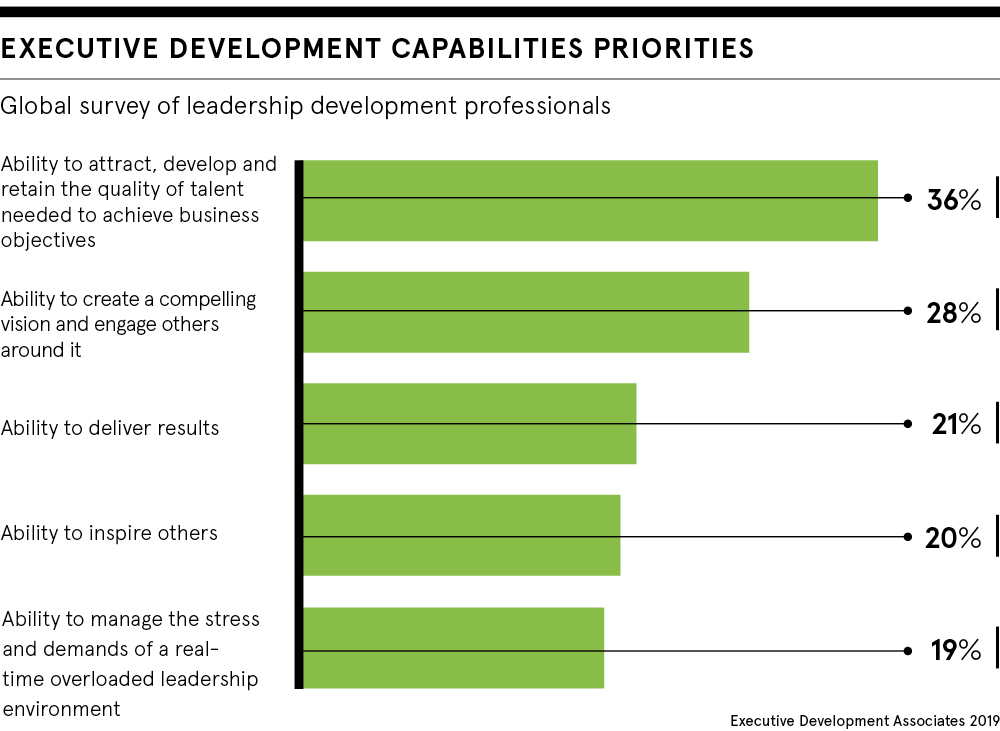The coronavirus crisis has been a time for reflection across all businesses. As well as shifts away from offices towards home working, an acknowledgement of the risks of meeting fatigue, and an increased awareness of the challenges of juggling family life and professional life, we’re seeing a recognition that the new norm can’t be the same as the old, pre-pandemic world.
“It won’t be the biggest companies or the strongest brands that survive, but the ones most adaptable to change,” according to Tobias Lütke, chief executive of Canadian tech firm Shopify.
Lütke is one of hundreds of CEOs considering how they run their businesses and the skills they cherish in their employees, from top to bottom. Forward-thinking businesses ready to use the crisis as a reset for a new way of work, not just to carry them through the next few months but the decades to come, need to reconsider every aspect of the way they work.
The skills a CEO needs are shifting
“What can companies do? They have to look at their cadre of managers, from shop floor to top floor, and do an audit of them,” says Sir Cary Cooper, professor of organisational psychology and health at Manchester Business School. They need to consider the skills most important in every aspect of management, from the boardroom to the frontline of businesses, and it’s no longer the core competencies of old that are required. Indeed, the idea of what a leader is has changed.
Dr Joanne James, director of leadership development and organisation futures team at Newcastle University Business School, says: “If you look back through leadership development, there’s this sense that the leader is out front, but what becomes evident is, because the world is changing quickly, it’s difficult to know about everything.”
James and her colleagues are developing a suite of executive education programmes designed to upskill executives to deal with the changing requirements of bosses post-pandemic.
These changes aren’t new, but COVID-19 has accelerated a longer-term shift in the skills a leader needs. The tumult caused by the pandemic shows no single person has the answers, and humility and a willingness to listen to dissenting voices is more important than ever. Leadership by delegation and through participation is a crucial skill, and one that many C‑suite inhabitants have to learn.
“The leader trying to cope with unpredictable, volatile futures needs to be able to collaborate effectively with lots of people from different disciplines,” says James. “They need to speak different languages.” That means hearing outside, diverse voices and also paying attention to more than just the bottom line.
Empathy is replacing technical know-how
Manchester Business School’s Sir Cary is a founding member of the National Forum for Health and Wellbeing at Work, a group of 40 major employers, including the likes of BP, BT, Microsoft, GSK, Rolls-Royce and John Lewis, set up to improve workplace wellbeing and, with it, productivity.
“When we started in 2015, we said the most important thing to improve the health and productivity of the workplace is the line manager,” he says. “We need people to have better social and interpersonal skills: EQ, emotional intelligence.”
In the pre-COVID-19 world, people moved up the promotional ladder on the basis of their technical, not people, skills. “That will now change,” he says.
No single person has the answers, and humility and a willingness to listen to dissenting voices is more important than ever
Millions of us across the UK are expected to be working substantially from home not just in the coming weeks and months, but potentially for years to come. Managing a remote team, and building a sense of camaraderie and shared goals and aims, requires more than learning how to use Slack, Zoom and Microsoft Teams. It requires strong empathetic skills, the ability to listen and to account for changing circumstances.
That’s doubly important when considering the economic realities of the workforce. A looming recession could cost millions of people their jobs, with the UK being the worst-affected developed economy, according to the Organisation for Economic Co-operation and Development. Unemployment is set to skyrocket, with up to one in ten people out of work. That’s a challenge for many, and not just those out of work, as those returning to work will be asked to do more with fewer colleagues.
“They’ll be feeling more job insecure,” says Sir Cary. “You’ll need managers and bosses with people skills. If you don’t, the employees won’t produce the goods and will get ill.” The UK already has huge numbers of long-term absences due to stress, anxiety and depression. Without rapid reskilling to accommodate and manage the needs of employees, there’s a risk that this will get worse.
The new-look executive education
Executive education programmes have reflected these issues for a while, even before the pandemic wreaked its havoc. The skills they’ve identified as needing to be in the skillset of the future CEO, of being warm, welcoming, empathetic and encouraging, are being taught in programmes across the country.
“What we traditionally do is train MBAs cognitively on issues to do with economics,” says Sir Cary. “It’s operations management, accounting and finance, marketing, and conceptual, cognitive input, not behavioural change.”
But that is shifting. “Integration of content, the context and the process are what a good executive education is like,” says James. “An executive education provides some content that helps you to take something like a strategy framework, to look at your own organisation and see how you might think about strategic thinking to critique your organisation. It puts the learner back into their own workplace, so they’re connecting their workplace and professional experience with the content you’re sharing.”
The skills a CEO needs are shifting
Empathy is replacing technical know-how
No single person has the answers, and humility and a willingness to listen to dissenting voices is more important than ever

